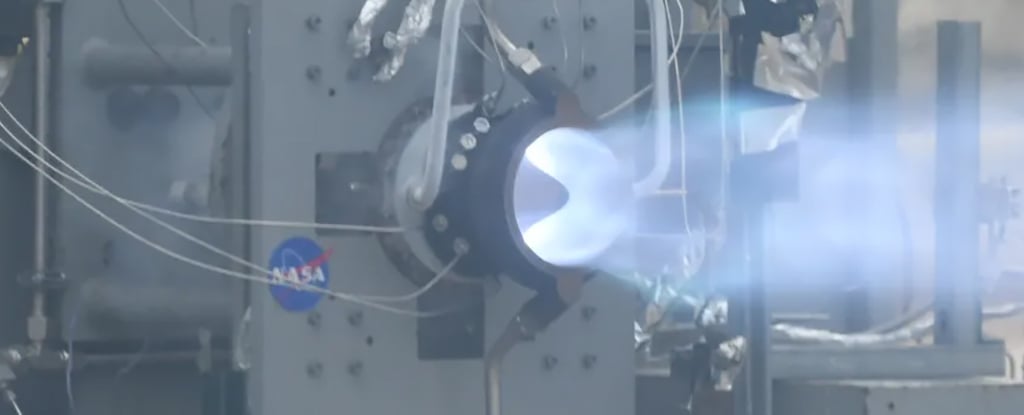Hypx
- 7 Posts
- 233 Comments

 61·1 year ago
61·1 year agoIt could mirror the economic stagnation of Japan that begun in the 1990s. Very similar set of circumstances.

 51·1 year ago
51·1 year agoYou’re better off spending it on stuff like mass transit and the like. It won’t just all disappear at some point in the future.

 63·1 year ago
63·1 year agoYou won’t be saying that once the market crashes. You’ll realize that there are much better ways of spending that money. Like far more practical emissions reducing solutions.

 114·1 year ago
114·1 year agoNot really. It’s mainly about gaining market dominance on a technology they think is the future. They’ll build them right next to the massive coal plant alongside a million other things they’re subsidizing.

 119·1 year ago
119·1 year agoIt’s the result of massive subsidies. When they stop, this market will crash like a house of cards.

 02·1 year ago
02·1 year agoMass layoffs is going to make it worse, not better.

 01·1 year ago
01·1 year agoThere’s good reason to believe that Tesla is an Enron-esque style fraud. No one in charge has shown any business acumen, and no one can explain how it is actually profitable. But that requires only stooges and yes-men on the board. There cannot be any accountability.

 7·1 year ago
7·1 year agoNo. This is just a return to the days of the IE-only web. It will be problematic but it won’t be the end of the web.

 2·1 year ago
2·1 year agoThis. People are basically in denial over how poorly Mozilla is handling Firefox. They are genuinely going to drive their product to zero marketshare pretty soon.

 12·2 years ago
12·2 years agoWithout delving into the question over how good the game is, this sounds like a company that simply has the wrong processes in place. A case of “working hard” instead of “working smart.” As a result, they waste a lot of time and resources on things that ultimately don’t matter. I’m sure the person in question worked really really hard on the game, but it’s mostly pointless and ineffectively effort.

 1·2 years ago
1·2 years agoThe claimed figures are arguably too clean. Wouldn’t be surprising if it was a bad/fake poll. If 1/5 of young people were really Holocaust deniers, we’d absolutely hear about those types of people all the time.
It’s the same story as with diesel or ethanol cars. There are always some short-term “easy” solutions that don’t scale or aren’t really that green. BEVs is just the next stage of that. You can obsess all you want with a transitional technology, but that doesn’t stop the march of progress.

 1·2 years ago
1·2 years agoHydrogen is the future. Batteries are unsustainable and will only be a transitional technology.
We have had hydrogen pipelines for decades, and large scale storage in the form of underground salt caverns. These things basically work the same as natural gas pipes and storage systems. The only real challenge was local storage, which has mostly ceased to be a problem with the rise of carbon fiber tanks. There are tens of thousands of FCEVs around the world, and rarely any issues with dealing with hydrogen storage.
The main limiting factor is infrastructure, or rather lack thereof. But the difference here is that you think it is technically impossible or at very least difficult. I believe it is simply a matter of building it, which is pretty straightforward.
BEVs also were impossible to buy for most people until around the mid-2010s. They went a century of near non-existence before then. FCEVs are simply going through a similar process. Sooner or later, they will be everywhere and BEVs will be abandoned afterwards.
You can buy whatever you want right now. It’s not like anyone’s stopping you. The point is that BEVs are not the answer. They are just a transitional idea and won’t last.
No, there are not. A lot of these concerns are from people stuck in the past, or have an agenda.
You can generate your own hydrogen, and there are a few companies building products for that. Though realistically there will be some degree of centralization. Most people will buy hydrogen and not bother with home production.
BEVs are really the result of subsidies and virtue signaling. It is a mandate driven by delusional pseudo-environmentalists. The same people that got nuclear banned in much of the world. It is not a serious attempt at green transportation. And it will likely die-off in favor of FCEVs or other ideas once the time comes.

 491·2 years ago
491·2 years agoDeveloper feedback is usually about answering questions that the players have, or finding bugs that were missed in QA. What Bethesda is doing is quite a bit more ridiculous.

 68·2 years ago
68·2 years agoWhich is why car makers need to pursue ideas like e-fuels and hydrogen cars. The obsession with BEVs is tunnel vision, and is doing more harm than good.
The advantages of a chemical fuel is that you make them when costs are very low and save them for when you need them. Even months later if need be. Not doable with batteries. Even the ICCT is admitting that electricity used to make hydrogen is going to much cheaper than electricity used to charge BEVs. It will likely be cheaper to operate a hydrogen car due to that fact.
At least with e-fuels, there’s an argument to be made that there are too many unnecessary steps and that costs will be high. But with hydrogen, that argument doesn’t really hold water. Fuel cell cars are also EVs. The gap between BEVs FCEVs on efficiency is small and shrinking. When the full lifecycle factors are included, it is likely the FCEV is the more efficient idea even now.







The solution is to eliminate self-driving cars and instead invest more in mass transit and walkable neighborhoods.